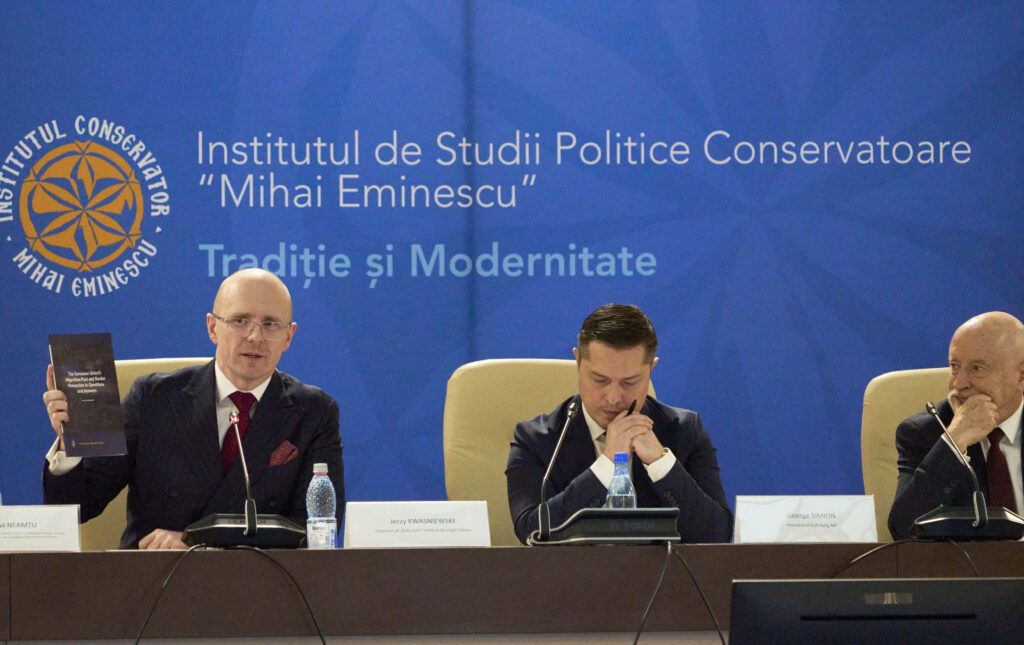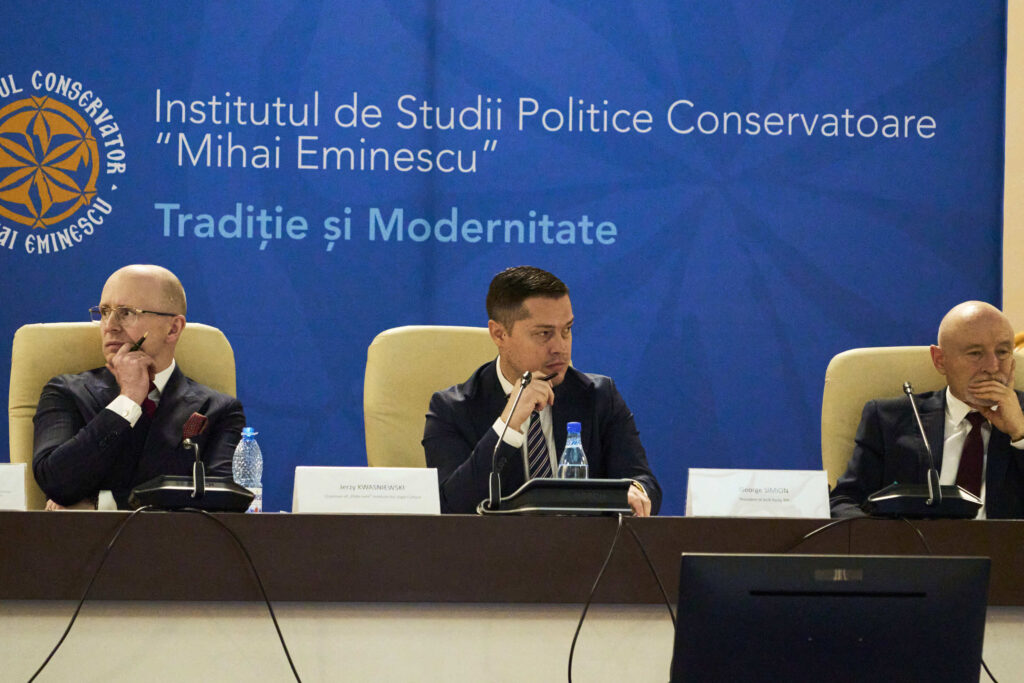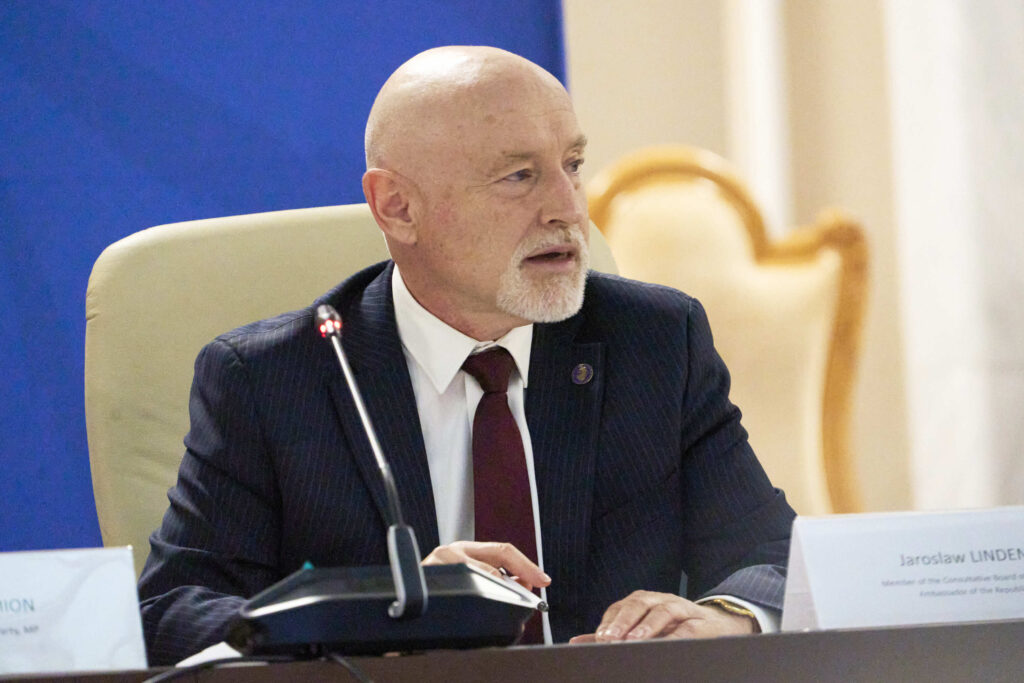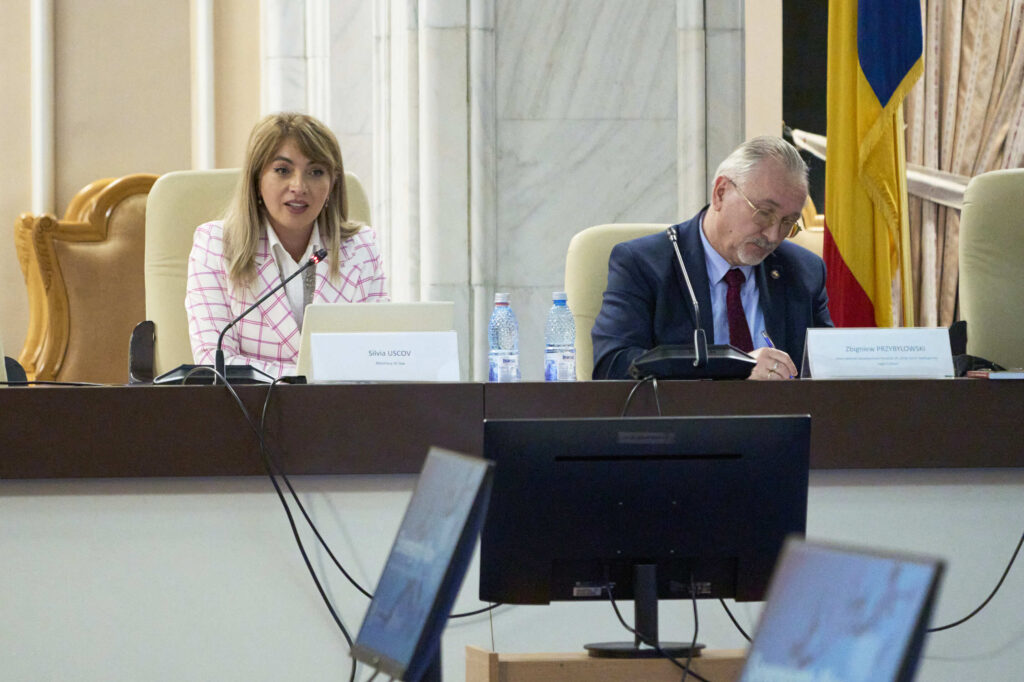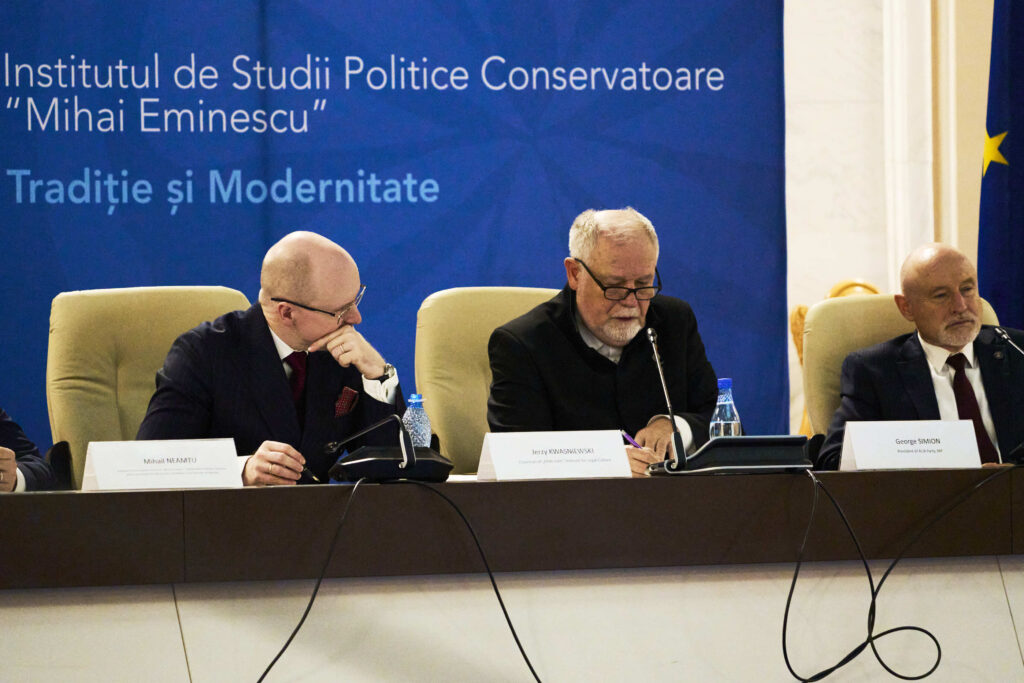MAIN POINTS
1
On Wednesday, the Ordo Iuris Institute, together with the Romanian Conservative Institute “Mihai Eminescu,” organized a conference in Bucharest titled “Sovereignty Now – United Against EU Migration, Green Deal & Overreach.”
2
The event took place at the Romanian Parliament and was yet another international meeting during which the Ordo Iuris Institute presented its publications on the threats to sovereignty posed by the European bureaucracy.
3
The conference was attended by, among others, Romanian parliamentarians, MEPs, and former Romanian presidential candidate George Simion.

In Bucharest, a conference co-organized by Ordo Iuris, took place under the title “Sovereignty Now – United Against EU Migration, Green Deal & Overreach.” The Ordo Iuris Institute was represented by its president, attorney-at-law Jerzy Kwaśniewski, Dr. Jarosław Lindenberg – a former ambassador of Poland to several countries and a member of the Institute’s advisory team and co-author of reports on European Union policy, as well as Zbigniew Przybyłowski—the Institute’s Director for International Outreach.
Speakers from the Romanian side included, among others:
– George Simion, the leader of the Alliance for the Union of Romanians (AUR—Alianța pentru Unirea Românilor) and a presidential candidate in this year’s elections;
– Fabian Radu, the President of the Mihai Eminescu Conservative Institute and a Member of the Romanian Parliament;
– General Mircia Chelaru, a senator from the AUR party and the former Chief of the General Staff of the Romanian Army;
– Dr. Mihail Neamțu, a Member of the Romanian Parliament, the Chairman of the Scientific Council of the Mihai Eminescu Institute, and the Chairman of the Committee on Culture, Arts and Media of the Chamber of Deputies of the Parliament of Romania.
Also among the invited guests were representatives of patriotic circles from Bulgaria.
Jerzy Kwaśniewski outlined in his speech the EU’s actions that over the last 30 years have led to a slowdown in economic growth and to a migration and demographic crisis. He also described plans for further EU centralization, which threaten the cohesion of nation-states and their sovereignty.
Ambassador Lindenberg, for his part, spoke about the European Union’s advancing centralization and its depriving member states of their sovereignty, as a mechanism embedded in the structure of that organization and a fundamental premise stemming from the adoption of the ideological foundations of the Italian communist Altiero Spinelli. He also noted that the European Union’s institutional architecture is not permanently fixed but is undergoing dynamic development, and therefore the member states can shape it freely according to their own will and capabilities.
In turn, Zbigniew Przybyłowski pointed to the Green Deal and the climate initiatives that preceded it as a mechanism for transferring income from industrialized countries to developing countries, which constitutes a major financial burden mainly for European countries and offers no grounds to expect effectiveness in achieving the intended objectives. In fact, the total carbon dioxide emissions generated by European countries are many times lower than the increase in emissions in China alone.
Romanian representatives pointed to the European Union’s overstepping of its powers and the need for a coordinated response by the Member States. They urged not to give up sovereignty without a fight—the sovereignty for which our fathers shed blood.
At the conclusion of the conference, the Ordo Iuris Institute and the Mihai Eminescu Conservative Institute ceremonially signed a declaration of cooperation to defend and support national sovereignty, common heritage, human dignity, the family, and freedom of speech.
This was another of the international events at which the Ordo Iuris Institute presented publications on protecting sovereignty against abuses by EU authorities. Previous ones were held, among others, in Warsaw, Brussels, Paris, Washington, Budapest, and Madrid.
See also:
- Why Do We Need Sovereignty? Ordo Iuris report on the reform of EU treaties
- The Great Reset – the need for deep reform of the EU
Photos: Ordo Iuris

